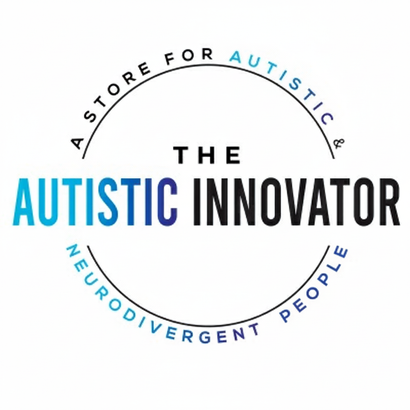If you have been wondering what reasonable accommodations you can ask for in the workplace, I have some resources for you.
The first thing autistic adults wonder is if they should disclose their autism to an employer. The Center for Autism Research has a useful guide on self-disclosure in the workplace with links to more resources.
Examples of Workplace Accommodations for Autism
There are several reasonable accommodations you could ask for in your workplace.
Every company works differently, so while some of these can be an option for some employers to provide, they might not work in every situation. Here are just a few options.
Allow Headphones or Earplugs While Working
Sometimes, being able to listen to music while working can help block out the common office sounds and help us focus.
Listening to music can block out the background noises, or perhaps you prefer noise cancelling headphones so you can have silence.
There are also earplugs like the Loop earplugs that could be an option as well. They still allow you to hear a person speaking to you, but dull the surrounding noises.
As an Amazon Associate I earn from qualifying purchases. Here is my Amazon affiliate link for the Loop Earplugs. It is not necessary to purchase through my link, but it is much appreciated. I sleep with them in my ears every night because they block out the sounds of my noisy neighbors.
Allow for Routine and Scheduling
If an employer allows their autistic worker to create an expected work routine and schedule, it could reduce the stress from the unexpected.
Some jobs require you to multitask and quickly move from one situation to the next, so this might not work in every situation.
Working in Natural Light Instead of Fluorescent Lights
Fluorescent lights buzz loudly, and they can hurt your eyes. If your employer can let you work in natural light near a window instead of the office fluorescent lights, it could be an option for you.
Of course, this only applies to office environments where there are lots of windows, or if you have your own office, so this won’t apply to every job.
Clear Direct Instructions and Guidance
Some of us prefer to be given very clear direct instructions and guidance in our workplaces, especially during job training.
While training for a new job, it can be useful to take step-by-step notes on how to accomplish various tasks of the job. It can help you learn the job in-depth and give you notes to look at when you forget what to do.
An employer saying logically, directly, and literally what they need from you could help. This is one of the reasonable accommodations that may be the easiest for your employer to do.
You Can Find a Mentor
Sometimes finding a mentor or coach familiar with autism can be helpful.
Autism coaches can help you with many aspects of your life. They can also guide you on anything from life skills to requesting workplace accommodations that best suit your situation and employer.
If you are in the United States, ASPIE-R provides coaching services for adults on the spectrum. An autistic adult created the business for people on the spectrum.
There is also a list of autism coaches & mentors, if you are in the UK.
Finding a Business Mentor
When you want to start a business, it can be harder to find guidance on where to start.
Thankfully, SCORE has an entire network of mentors, ranging across many types of businesses and aspects of running your business.
You visit the SCORE.org website to submit your information and they will contact you when they’ve found a match. You can also browse the volunteer mentors by searching specific keywords related to what you need help with.
While it is not specific to autism, it can be useful if you decide you’d like to explore the possibility of running a business, how to start your business, or how to manage various aspects of your business.
Resources for Workplace Accommodations
There are several online resources you can use to determine which accommodations would best suit you. I have compiled a list of resources for you and your employer.
Resources for Employers
Your employer may be open to the idea of learning more about how to accommodate your autistic differences from the neurotypical workers. The US Department of Labor has a list with many resources for your employer.
Legal Resources
If you like to read legal jargon, the ADA National Network wrote a legal brief about the ADA laws related to autism.
ADA stands for Americans with Disabilities Act. These laws protect individuals with disabilities from discrimination in the workplace.
There is also an in-depth legal history behind the ADA and how it applies to autistic people.
Discrimination in the Workplace
Encountering discrimination in the workplace is something all of us hope to never encounter in our workplaces.
If you feel you are being discriminated against, the EEOC has a list of questions and answers you might ask and they give guidance on what steps you can take.


